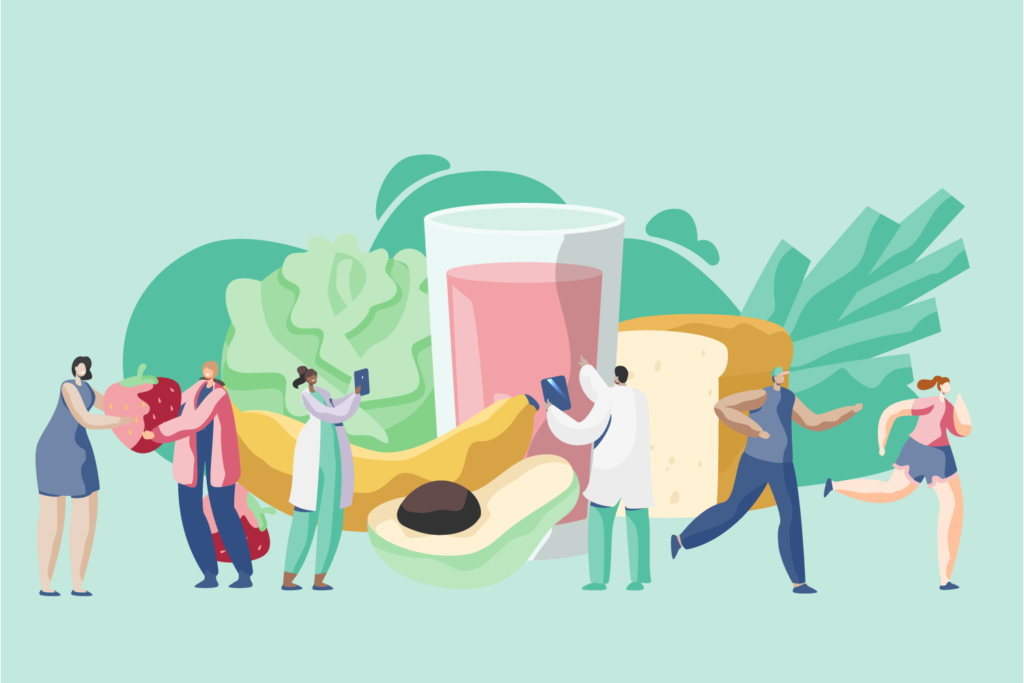This interview was conducted by Sahasra Tummala and Prarthana Chelat and transcribed by Prarthana Chelat.
Could you tell us a little bit about yourself?
So I have been a clinical dietician for a long time, more than 15 years. I started my career with nursing homes and rehab centers, moved to Texas, and started working for Med City Mckinney, an acute care hospital. I have been working there for about 12 years now, and then I became a supervisor dietician. We also have a behavioral health unit in the hospital where we see many patients with eating disorders, so I have seen some patients within this population. Right now, I’ve moved away from the Med City acute care setting, and I am working in Fresenius, a dialysis center. It’s a bit different from what I’ve done so far, that’s kind of what I like to do with my career. As I said, I’ve been a dietician for a long time, and I have great experience in different population scenarios.
What does your role consist of as a dietician, specifically what do you do with your patients?
Being a dietician, you can manage food service anywhere. You pretty much run the kitchen. So that is one aspect where you are not clinical. However, as a dietitian in an acute care setting, you see patients who are acutely ill, so you are seeing patients who are pretty much at high risk. We have much education on diabetes, cardiac failure, cardiac arrest. But many people cannot eat alternate nutrition, so we do a lot of feeding and IV nutrition, so the dietician is always involved in doing those things. Being at a hospital is very clinical, working as a team with doctors, nurses, and the care team and doing what is best for the patients. Many patients are at high risk, especially with COVID, so if they are on an incubator, they cannot eat, involving alternate nutrition and feeding. Being in a behavioral health unit, the role is a little different. You talk to patients and find ways to optimize their nutrition intake, making sure they are eating well and meeting their nutrition status. In a real setting, it is again talking to the patients, watching their diets, looking at their labs, and optimizing their nutrition for them. So wherever you go, it’s a different role for a dietician, but acute care is very patient-oriented.
As a dietician, how would you define nutrition?
As a dietitian, nutrition is eating a well-balanced diet and ensuring you are getting all your nutrients for your body. I do not recommend a particular diet or anything like that. I believe in balanced eating and healthy eating. My goal is to help you get the nutrition for your body to sustain your life, and I do not promote any product or diet. That is what we are taught. To be healthy, you have to eat a very well-balanced diet, so that’s what I promote.
So would you identify as an anti-diet dietician?
I am an anti-diet dietician. I could say that because I do not promote any diets. There are many good things about certain diets or things you could include in your diet, but I do not necessarily agree with all of the aspects. There are some things like going low carb and going low protein, which I do not mind to a certain extent, but I do not recommend going to the extreme where you are eating no carbs and only meats or things like that. So different diets have different viewpoints. I like certain things about certain diets, but I do not completely agree with everything.
Do you think that belief comes out of believing that diets are a bit restricted?
Yes, diets are very restricted. For example, if you take a no-carb diet, you’re not getting any calories from sugar, which is what your brain needs for metabolism. Your brain needs that glucose to do day-to-day functions. If you limit your intake of certain food groups, your nutrition will be imbalanced.
What are your thoughts on nutrition therapy?
Nutrition therapy is extremely important. I think nutrition therapy is a very integrative part of a team in a hospital because the doctors can put you on a salt medication to remove the water from your body, but if you’re continuing to eat large quantities of salt, for example, that beats the purpose. The diets and the medications go hand in hand, so we try to work as a team in doing what is best for the patient. It is a very integrative part for the patient. The same thing is with diabetes. If patients are taking insulin but not eating what they’re supposed to be eating, that insulin only does 50% of the job.
How do you tailor diet plans to address diabetes and such?
In a hospital scenario, for example, we have different diets meant for different populations. So if it is a patient that comes in with a cardiac arrest, we have a cardiac diet or a heart-healthy diet for them. The diets are written so that it’s what’s best for the patient. The calories, the protein, and everything are calculated based on the needs of the patient. For a diabetic patient, the diets are limiting the sugar and the carbs and adding more protein. For a patient with cardiac issues, you’re limiting the cholesterol, the fat, the salt, and other things that a heart patient shouldn’t be consuming as much. For a renal diet, you’re modifying the diet by limiting sodium, potassium, phosphorus, and things that a renal patient shouldn’t be eating. So, we have all those diets set in our system, and we prescribe them to patients.
